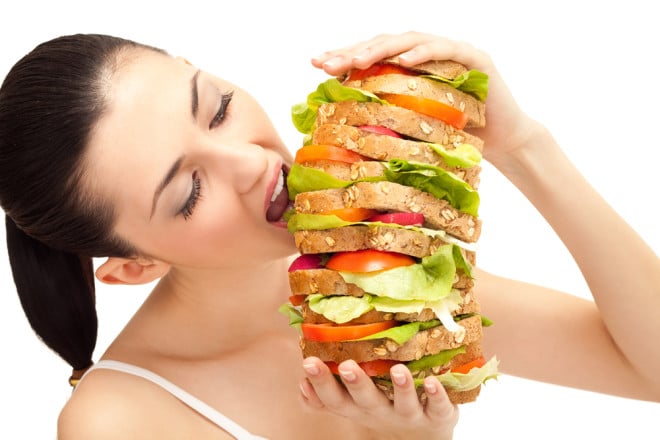Making Connections
First, these relationships begin on a basic emotional level
very early in life. “We have a complicated relationship with food that began
when we were toddlers,” says Leo Babauta, author of The Power of Less (Hyperion,
2009) and one of the world’s leading experts on simplicity and productivity. “This
relationship has become more and more complicated through endless amounts of
advertising, dieting, of eating when we’re sad and lonely and happy and bored
and at parties and going out and on dates and watching TV and so on.” The
result? Food is no longer just integral to survival— it is a symbol of comfort,
enjoyment, happiness, celebration and prosperity.
But negative experiences can also have a profound effect on
our relationships with food. Who hasn’t reached for a tub of ice cream after a
break-up, or zipped into a drive-thru after a bad day? In fact, research shows
that stressed-out eaters tend to eat sweeter high-fat foods and more
energydense meals than those that are more chilled out.
“The brain is always creating associations,” says adjunct professor
and member of the American College of Sports Medicine, Mike T. Nelson. “If you
eat when you are sad and feel better, you strengthen the association that food
makes you feel better. If you eat when you are bored, your brain will suggest
food as the solution the next time you are bored.”
Your Brain on Food
Your emotional connections with certain foods are largely
due to the way your body responds to them on a physiological level. When you
eat, your brain releases powerful chemicals such as endorphins (that make you
feel good) and dopamine (which can motivate you to keep munching). For instance,
decadent treats such as cookies or ice cream release an enormous—even addictive—rush
of endorphins, more than when compared to eating something naturally sweet, and
potentially healthier, such as fruit. True, both of these foods contain sugar,
but the types of sugars affect the body very differently. For example, a large
banana has approximately 17 grams of sugar, which is about the same amount as a
chocolate-glazed doughnut. Given the choice between the two, many people reach for
the doughnut to cure a sweet tooth. Why? The highly processed, refined sugar reaches
the bloodstream faster than the naturally occurring sugar from the banana, which
creates a speedier (but shorter lived) endorphin rush than the fruit. That
instant spike of feel-good chemicals could be the reason you reach for a second
doughnut despite your better judgment, or, continue to crave them after the box
is empty.
Here’s where it gets really interesting. The thoughts you’re
having while you chomp on that doughnut actually play a role in how you
metabolize it. So, if you’re feeling guilt or shame about eating the extra
calories, you trigger a stress response that can slow digestion and even increase
fat storage. The same goes if you’re having negative thoughts about a healthy
meal (“Ugh, chicken and broccoli again?”). Here’s how it works: the negative
neural signals initiate an inhibitory response in the digestive organs,
preventing the body from fully metabolizing the food. This inhibitory response
also affects hormones (such as increased insulin and cortisol), which can lower
the calorie burning efficiency of our body and cause us to store more of the
food as fat.

Percentage
of people surveyed that reported increasing food consumption when stressed that
were also restrained eaters or dieters
Change Your Mind
The good news is, finding non-food alternatives for cheering
yourself up or passing the time can slowly reverse these psychological associations
of eating for comfort. For example, the next time you reach for a 4pm snack,
ask yourself “Am I really hungry, or am I just bored?” If your desire to nosh
is out of boredom and not necessity, try out a new way to refresh your mind.
Get up, move around, bang out some push-ups, jump up and down, or chug a glass
of cold water. Over time, you can actually rewire your brain so that food is
not the only solution.
And although reaching for edible comfort during stressful
times can sometimes feel like the easiest and most convenient solution, Nelson
confirms that it is possible to limit this emotional reaction through
awareness. “The key is to reduce your impulse to eat while in a poor state or
mood,” he says. “Start by journaling what you eat, how it makes you feel, and
why. Once you are aware of your habits, you can begin to change them one by
one.”